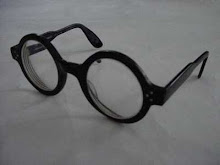

One “room” is a cramped cubby that measures, in all, perhaps 25 square feet, just enough for a full-size mattress and whatever can be stashed beneath. The first-floor rooms, in the basement, are musty and windowless, like caves. The second-floor rooms have plywood walls but no doors, only cut-out windows that overlook a kitchen cluttered with day-old dishes, a chore wheel and the odd paintbrush.
One of the residents likens her home to a “giant treehouse.” Another says it is like “living in a public bathroom.”
“Where the stalls are just superficial sight lines that block the other person, but you can hear everything they do,” said Robyn Frank, a 23-year-old artist. She had just moved in to the McKibbin lofts in East Williamsburg, Brooklyn, and sometimes they literally become bathrooms. They are known for their giant, raucous parties; revelers occasionally urinate in the halls.
This is life in what some refer to as the McKibbin “dorms,” a landing pad for hundreds of postcollegiate creative types yearning to make it as artists, and live like them too, in today’s New York.--Cara Buckley, 'Young Artists Find a Private Space, Only Without the Privacy', New York Times (7 May 2008).
I'm leaving New York for nine months to teach at a
small liberal arts college in North Carolina. Not too many people up here seem to have heard of it; but I've always had a really favorable impression of its academics, and I feel really lucky to have a chance to work there.
Thing is, it's not in New York, so naturally I'm spending a lot of time right now thinking about what I'm leaving behind. Among the things I'll miss most are (1) the living room of my loft in the abovementioned art/hipster 'dorms', (2) my neighbors, and (3) 'the McKibbin' in general (I've lived here over a year and never heard it called that except in The Times).
Our living room (I live with two others) is a really serene place. Southern exposure; overlooks the garden of a neighboring church, with its gurgling fountain and chiming bells; a tree spreads out right in front of our giant windows, providing privacy, oxygen, and the occasional visiting squirrel. I've loved the space from the minute craigslist brought me to it, and it's the first one that's really engaged my nestbuilding drive. It's pictured below the 'cage' shot that ran on the front page of the
Times with Buckley's story.
Now, maybe our space is
a little bit Ikea'd out for some people's tastes (that's a topic for another day). Maybe it wouldn't make the cover of
Dwell or
Paper or whatever else people read for images of hip, designer-infused living. Me, I think it's a pretty good place to come home to, and it's a sharp contrast to what Buckley would have you think was the norm.
I'm not saying that me and many of my neighbors don't live with paper-thin partitions: I can hear my roommates sneeze through the walls, and they can hear my 'Bless you!' in response. I'm not saying that there aren't raucous parties with plenty of stupid reveler-behavior: I once clambered up the stairs to check out a loud rooftop party, heard what sounded like Niagara Falls, and discovered a girl peeing at the top of the stairwell (yes, I called her a girl, but she started it by calling me 'sir' when I asked her what the hell she was doing). I'm not even denying that some of the residents and their friends are trustafarian/hipster interlopers with little self-consciousness regarding their own class and race privilege: the asshole quoted as saying 'I don't really speak to the locals' is a dear friend of mine. I'm just saying that's not the whole story. And unfortunately, even though I spoke to Cara on several occasions, introduced her to a number of local characters, and offered to show her my own loft and some much doper ones, she ended up with the story she ended up with.
Ah--maybe I'm just sore I didn't make it into her story (she told me right before it came out that I didn't fit the demographic she was tasked to cover). I've been reading the Paper of Record since I was twelve, and I guess I'll just never feel like a somebody till It records me. In any event, I did try to defend her when the shit hit the stands and all my neighbors were baying for her blood. Buckley's portrayal is a sore subject around these parts: during a recent discussion in the cafe downstairs, I tried to convince some tablemates that Cara, however one may disagree with her, was not in fact some sneering Manhattanite (FWIW, she lives in Park Slope) determined
a priori to heap disdain on all things bohemian and Brooklyn; my immediate opposite simply turned her head and diverted her attention to a neighboring conversation while I was in midsentence.
Gosh, maybe the kids aren't alright.
Anyhoo, the more interesting questions have to do with the current state of the Bohemian Dream--
if such still exists. But that goes beyond the limits of a simple 'That reporter nailed it!'/'That reporter doesn't know what she's talking about!' diatribe...






